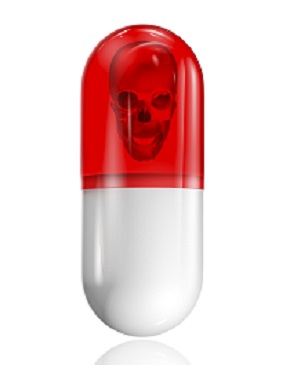Prevent Prescription Drug Abuse In Your Teen
Prescription drug abuse is a major problem across the U.S. and for people of all age groups. Teens, however, are particularly vulnerable and if you have children you should be aware of the risks and dangers. There are two main kinds of drugs being abused by young people: narcotic painkillers and stimulants. The former are used to get a high, but the latter are often abused as a study aid. Stimulants, like those used to treat ADHD, produce wakefulness and many teens use them to stay up at night for studying.
The statistics regarding teen abuse of prescription drugs are alarming. Since 2008, abuse has risen by 33 percent. The statistics also show that most young people do not believe there are any risks in abusing prescriptions and that parents are largely ignorant when it comes to their children’s abuse of these drugs as well as the risks. Learn how to keep your teen safe.
Where Do Teens Get Prescription Drugs?
 The first line of defense against abuse of prescriptions by your teen is to limit her access to them. So where are teens getting these medications? The most common location for teens to find prescriptions is the medicine cabinet. Teens get drugs right from their own homes. If they can’t find them there, they turn to their friends’ medicine cabinets. Many people are prescribed narcotics and stimulants, so finding them in homes is not difficult.
The first line of defense against abuse of prescriptions by your teen is to limit her access to them. So where are teens getting these medications? The most common location for teens to find prescriptions is the medicine cabinet. Teens get drugs right from their own homes. If they can’t find them there, they turn to their friends’ medicine cabinets. Many people are prescribed narcotics and stimulants, so finding them in homes is not difficult.
If the drugs cannot be pilfered, your teen can most likely buy them. Buying and selling prescriptions in high schools are common. Your teen may also be able to purchase medications online. Illegal pharmacies will not hesitate to sell to a teen.
How Can I Limit My Teen’s Access To Prescriptions?
With prescription medications so prevalent in homes, at schools and online, you need to be especially vigilant to restrict your teen’s access. If you have prescriptions in your home, keep them in a locked cabinet. If your teen has been prescribed one of these commonly abused medications, keep it locked up and dose it out to her as directed by her doctor. A common source for stolen medications is expired pills that have been forgotten or thrown in the trash. Be aware of your unused drugs, keep track of them and dispose of them properly.
Unfortunately, limiting your teen’s access to drugs at home is where your control ends. You cannot control her access at school or at friends’ houses. What you can do, though, is educate your teen about the risks and dangers of drug abuse. First read up for your own knowledge and then talk to your children about how harmful prescriptions can be. Although they are legal and prescribed by doctors, these factors do not mean they are safe for everyone.
It is also important to educate your family and friends about prescriptions and keeping them under control. Your teen may be able to find drugs at a grandparent’s house or any other family member’s, but if everyone kept tighter control of their medications, fewer drugs would end up on the black market.
Finally, it’s important that you maintain a close and open relationship with your teen. The more time you spend interacting and talking, the more able you will be to detect when something is wrong or if she is showing signs of abusing drugs. This healthy relationship will also mean that your teen will be more likely to come to you with questions, concerns, and problems related to drugs and drug abuse.



